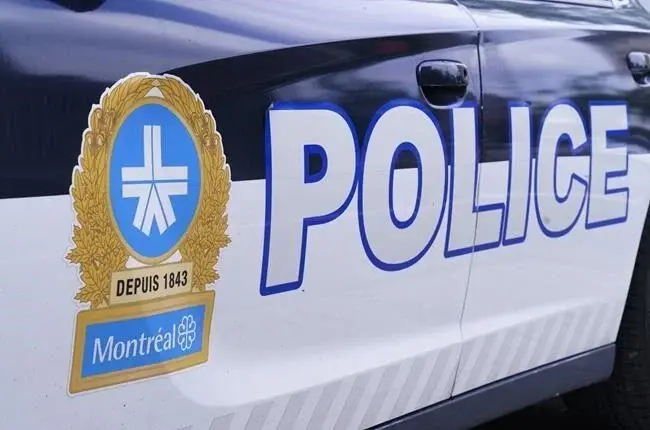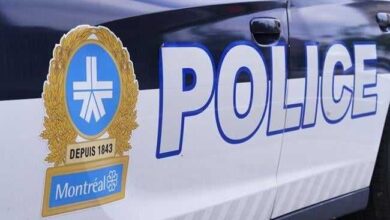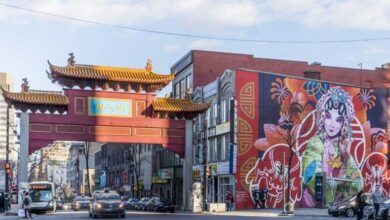
The vibrant streets of downtown Montreal, known for their rich cultural tapestry and bustling activity, were marred by a shocking incident that has sent shockwaves through the community. A man was shot dead, marking the city’s 19th homicide victim this year. As the city grapples with the aftermath of this tragic event, concerns over rising violence and crime rates have become a pressing issue that demands both attention and action.
The Incident
The incident occurred on a seemingly ordinary day, but it quickly escalated into a horrifying tragedy. Details surrounding the shooting are still emerging, but according to reports from Montreal police, the victim, whose identity has been withheld pending family notification, was shot in broad daylight near a bustling intersection in downtown Montreal. The area, typically filled with pedestrians and commuters, became a scene of chaos and terror as the gunshot rang out. Passersby immediately called emergency services, and first responders rushed to the scene. Unfortunately, despite their swift response, the victim succumbed to his injuries before any medical assistance could be rendered.
Law Enforcement Response
Local law enforcement agencies sprang into action in response to the shocking shooting. As the news spread, the area was swiftly cordoned off to preserve the integrity of the crime scene. Homicide detectives, forensic experts, and crime scene investigators were dispatched to gather evidence and piece together the events leading up to the fatal shooting. The initial stages of the investigation focused on collecting physical evidence, such as shell casings, bullet trajectories, and any potential surveillance footage from nearby businesses.
While the investigation is ongoing, witnesses who were present at the time of the incident are being interviewed to provide any possible insights into the motives behind the crime and the identity of the perpetrator. These eyewitness testimonies will play a crucial role in understanding the circumstances that led to the shooting and identifying any potential leads for the police to follow.
Citywide Concerns
The shooting has fueled growing concerns about public safety and the overall state of security in downtown Montreal. The incident marks the 19th homicide in the city this year, a figure that has left residents and local authorities deeply troubled. The rise in violent crimes, especially in areas that were once considered safe, has sparked conversations about the need for a comprehensive strategy to address these issues and ensure the well-being of the city’s inhabitants.
Residents who frequent the downtown area for work, shopping, and entertainment have expressed their fears over the escalating violence. Many are reevaluating their daily routines and wondering whether it is safe to venture out in the city’s busiest areas. Business owners, too, are feeling the impact as customers become more hesitant to visit establishments located in downtown Montreal.
Community Reaction
News of the tragic shooting has sent shockwaves through Montreal’s tightly-knit community. Residents have expressed their condolences for the victim’s family and friends, while also voicing their concerns over the escalation of violence in their beloved city. Social media platforms have been flooded with messages of support and calls for action, with many urging the local government and law enforcement agencies to take immediate steps to curb the rising crime rates.
Vigils and memorial gatherings have sprung up across the city, allowing individuals to come together in solidarity and remember the life that was lost. Candles are lit, flowers are laid, and heartfelt messages are shared, serving as a poignant reminder of the human toll that violence takes on a community.
Government Response
Montreal’s city officials have not remained silent in the wake of this tragedy. Mayor Catherine Tremblay held a press conference where she addressed the incident and its implications for the city’s safety. She expressed her condolences to the victim’s family and assured residents that the city is committed to taking measures to address the escalating violence.
Mayor Tremblay announced the formation of a task force comprising law enforcement officials, community leaders, and social workers. This task force will collaboratively develop strategies that would make the city safer for everyone. The mayor emphasized that a comprehensive approach is essential, one that tackles both the immediate law enforcement concerns and the underlying societal factors that contribute to criminal behavior.
Addressing the Root Causes
The tragic incident has prompted many to reflect on the underlying factors that contribute to the rise in violence and crime. Societal issues such as economic disparities, lack of educational opportunities, and limited access to mental health services have been identified as potential drivers of criminal behavior. Montreal, like many other urban centers, grapples with issues of inequality and disenfranchisement that can create an environment conducive to criminal activity.
As the city moves forward, there is a growing consensus that a multifaceted approach is needed—one that combines law enforcement efforts with social programs that address these root causes and offer support to individuals at risk of turning to crime. Education and employment opportunities, community outreach initiatives, and accessible mental health resources are all integral components of a strategy that seeks to break the cycle of violence and provide individuals with a pathway to a more productive and positive future.
Community-Police Relations
An important aspect of addressing crime and violence is fostering positive relationships between law enforcement and the communities they serve. Building trust between police officers and residents is essential for effective crime prevention and investigation. In recent years, some communities have called for enhanced community policing efforts, which involve officers working closely with community members to address local concerns and build rapport.
Through initiatives like town hall meetings, neighborhood watch programs, and community engagement events, police departments can establish open lines of communication and collaboration. This can lead to increased information sharing, better understanding of community needs, and ultimately, a more proactive approach to preventing crime.
Investment in Social Programs
To tackle the root causes of violence, it’s crucial for cities like Montreal to invest in social programs that address issues such as poverty, lack of education, and limited access to healthcare. By providing opportunities for skill development, job training, and education, municipalities can empower individuals to break free from cycles of violence and crime. Support for mental health services is equally vital, as untreated mental health issues can contribute to criminal behavior.
Restorative justice programs also play a role in reducing recidivism and promoting rehabilitation. These programs focus on repairing harm caused by criminal actions, involving both the victim and the offender in the process. By addressing the underlying causes of criminal behavior and facilitating dialogue between parties, restorative justice can lead to healing and a decreased likelihood of reoffending.
The shooting of a man in downtown Montreal that resulted in his untimely death has cast a somber shadow over the city. The incident, which marks the 19th homicide victim this year, has exposed the urgent need for effective strategies to curb rising violence and crime rates. The community’s outpouring of grief, coupled with the government’s commitment to take action, signals a collective determination to address these issues comprehensively.
As Montreal grapples with this tragedy, there is hope that the city can come together to create a safer and more secure environment for all its residents. By addressing the root causes of violence, investing in social programs, and fostering positive community-police relations, Montreal has the opportunity to not only respond to the immediate concerns but also lay the foundation for a brighter and safer future. Through collaborative efforts and a commitment to change, the city can honor the memory of the victims while working towards a more peaceful and harmonious urban landscape.



